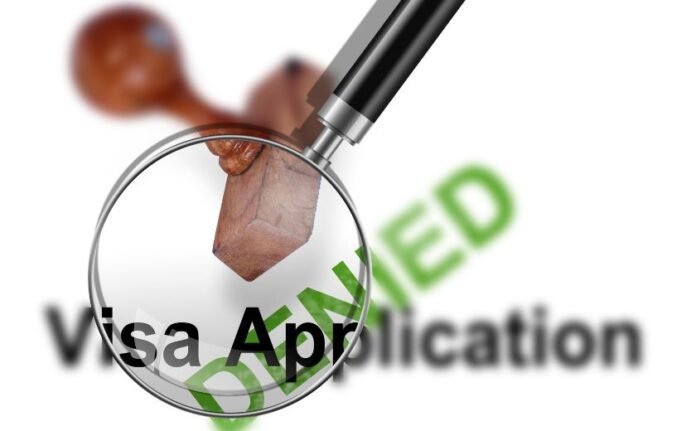Navigating the visa application process can be a complex and daunting task, particularly when it involves securing a prechodný pobyt cudzincov in a new country. Whether you’re moving abroad for work, study, or other reasons, understanding the intricacies of visa counseling is crucial for a successful application. This guide provides essential tips for navigating visa applications and securing temporary residence, ensuring a smooth transition to your new international home.
Understanding Visa Counseling
Visa counseling involves specialized assistance to help individuals and families successfully navigate the visa application process. Counselors offer guidance on eligibility, documentation, and submission procedures to maximize your chances of obtaining the desired visa. They are well-versed in the requirements and regulations of various countries, providing expert advice tailored to your specific situation.
Key Aspects of Visa Counseling
- Assessing Eligibility: The first step in the visa application process is to determine your eligibility for the visa type you are applying for. Temporary residence permits often have specific criteria, including employment status, financial stability, and health requirements. Visa counselors help assess your eligibility based on these criteria, ensuring you meet all necessary conditions before applying.
- Choosing the Right Visa Type: Depending on your purpose for relocating, you may need to apply for different types of visas, such as work, student, or family reunion visas. Counselors can help you understand the different visa categories and choose the one that best fits your situation and long-term goals.
- Preparing Documentation: One of the most critical aspects of the visa application process is gathering and preparing the required documentation. This may include proof of financial stability, employment letters, academic transcripts, and more. Visa counselors guide you through the documentation requirements and ensure that all documents are complete, accurate, and submitted correctly.
- Filling Out Forms: Visa applications often involve detailed forms that require precise information. Incorrect or incomplete forms can lead to delays or rejections. Counselors assist in filling out these forms correctly and reviewing them to ensure that all necessary information is provided.
- Understanding Processing Times: Visa processing times can vary significantly depending on the country and type of visa. Counselors provide insights into expected processing times and help you plan accordingly. They also advise on any potential expedited processing options, if available.
- Navigating Interviews and Biometrics: Some visa applications require interviews or biometric data collection. Visa counselors prepare you for these steps by providing guidance on what to expect and how to present yourself effectively.
Tips for a Successful Visa Application
- Start Early: Begin the visa application process as early as possible to allow ample time for gathering documentation, completing forms, and addressing any issues that may arise. Starting early also helps accommodate any potential delays in processing.
- Be Accurate and Honest: Ensure that all information provided in your application is accurate and truthful. Providing false information or omitting details can lead to complications and potential rejection of your visa application.
- Follow Instructions Carefully: Each visa type has specific requirements and instructions. Carefully follow all instructions provided by the relevant authorities or your visa counselor to ensure that your application is processed smoothly.
- Maintain Organized Records: Keep a well-organized file of all documents related to your visa application. This includes copies of submitted forms, supporting documents, and correspondence with authorities. Organized records can help you quickly address any issues or requests for additional information.
- Seek Professional Guidance: Working with an experienced visa counselor can greatly improve your chances of a successful application. Counselors provide valuable insights and support, helping you navigate the complexities of the visa process and avoid common pitfalls.
- Prepare for Contingencies: Be prepared for possible contingencies, such as additional requests for information or delays in processing. Having a backup plan and staying flexible can help you manage any unexpected challenges that may arise during the application process.
Addressing Common Challenges
- Document Discrepancies: Inconsistencies or discrepancies in your documents can lead to delays or denials. Ensure that all documents are accurate and consistent, and seek assistance from your visa counselor if you encounter any issues.
- Visa Rejections: If your visa application is rejected, it’s important to understand the reasons for the rejection and address any issues before reapplying. Visa counselors can help you analyze rejection reasons and make necessary adjustments to improve your chances of approval in subsequent applications.
- Changing Regulations: Immigration laws and regulations can change frequently. Staying informed about the latest updates and seeking advice from your visa counselor can help you adapt to any changes and ensure compliance with current requirements.
Conclusion
Visa counseling is an essential resource for anyone navigating the complexities of international relocation and securing a temporary residence permit. By understanding key aspects of visa counseling and following essential tips for a successful application, you can enhance your chances of obtaining the necessary visa and making a smooth transition to your new country. Whether you’re moving for work, study, or personal reasons, expert guidance ensures that you meet all requirements and navigate the process with confidence.



